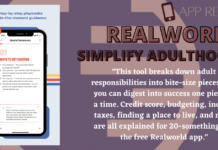Last week, we talked about how to effectively carve a healthy study environment out of your living space. For our fourth part of this academic success series, let’s get into a topic that every single one of us struggles with, whether we are quarantined or not: distractions. While distractions plague all of our lives, they are specifically prevalent these days when, for many of us, our work space, fun space, and sleep space are all one in the same. How can we stay on topic when we spend hours at a time on our coursework less than ten feet away from our Nintendo Switch?
We talked once more to Valerie Balester, the Assistant Provost for Undergraduate Studies and the Executive Director for Academic Success Center and University Writing Center at Texas A&M, and she gave us some great advice on how to handle this exact situation.
First of all, Balester notes, headphones are a lifesaver; they help you focus if “there is a lot of noise or distraction in your work area,” and furthermore, “they help you participate in online meetings with less noise.” In other words, they help to cut back on the common distractions around our homes. It’s also a great trick for minimizing discussion with a talkative roommate or family member because when you’ve got headphones on, it’s a signal that you’re working. Additionally, Balestar reminds us that if “you like to study with music, go ahead, but know that music with lyrics can distract you.”
Secondly, Balester suggests that you study in cycles, which she explains this way: “study in 40 minute cycles—after 40 minutes, take a 10 minute break by getting up, stretching, and moving a bit. Set a timer and get back to work after the break for another 40 minutes if you can.” While some people may need to adjust their cycles to 20 or 30 minutes, Balester says that 40 works well for most students.
The most important thing to note is that marathon studying doesn’t work very well; you need to give yourself, and your brain, time to rest! While it might seem like taking a break in between will lengthen your study time, don’t be fooled! Taking breaks improves concentration and retention, making your study time much more productive in the long run.
For more information on this subject, follow this link to a great Academic Success Center video on the concentration cycle: https://www.youtube.com/watch?v=VUbM8RNfE1g.
Best of luck to all students with their remaining coursework, and once again, we here at Maroon Weekly hope you are staying safe and healthy!






